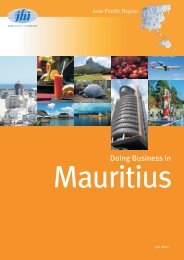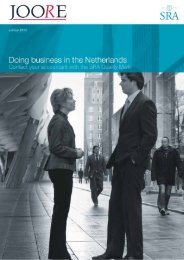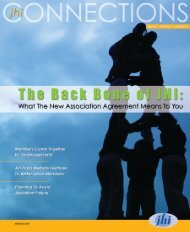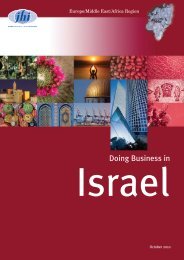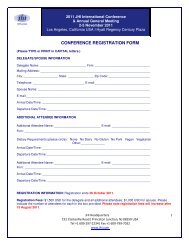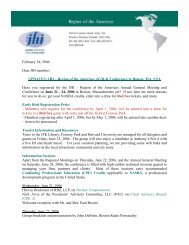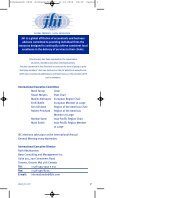Doing Business in - JHI
Doing Business in - JHI
Doing Business in - JHI
Create successful ePaper yourself
Turn your PDF publications into a flip-book with our unique Google optimized e-Paper software.
<strong>Do<strong>in</strong>g</strong> <strong>Bus<strong>in</strong>ess</strong> <strong>in</strong><br />
Liechtenste<strong>in</strong><br />
Foreign<br />
<strong>in</strong>vestment<br />
Investor considerations<br />
Extremely stable constitutional state<br />
Efficient communications systems<br />
Comparatively high cost of liv<strong>in</strong>g<br />
In general, hold<strong>in</strong>g and domiciliary companies are the<br />
only form of direct <strong>in</strong>vestments open to foreigners<br />
Absence of foreign exchange controls<br />
Favourable tax climate<br />
Restrictions of foreign ownership for Liechtenste<strong>in</strong><br />
real estate<br />
Restrictions on obta<strong>in</strong><strong>in</strong>g work permits for non-<br />
EU-citizens<br />
No tangible <strong>in</strong>vestment <strong>in</strong>centives<br />
Investment climate<br />
The Liechtenste<strong>in</strong> government has little power to<br />
<strong>in</strong>fluence foreign <strong>in</strong>vestments. The ma<strong>in</strong> exceptions are<br />
the acquisition of real estate by non-residents or foreign<br />
controlled resident companies, bank<strong>in</strong>g and <strong>in</strong>surance<br />
activities, and commercial activities performed with<strong>in</strong><br />
Liechtenste<strong>in</strong> by resident bus<strong>in</strong>ess enterprises and<br />
permanent establishments of non-residents located <strong>in</strong><br />
Liechtenste<strong>in</strong>.<br />
The Liechtenste<strong>in</strong> government supports free enterprise<br />
and free trade. There are no foreign exchange controls <strong>in</strong><br />
effect. Given the economic growth and limited population<br />
of the country, foreign labour has necessarily become a<br />
significant part of the national economy and represents<br />
more than 50 percent of the total labour force. In recent<br />
years, however, political pressure has been brought upon<br />
the government to limit the number of foreigners<br />
permitted to live and work <strong>in</strong> Liechtenste<strong>in</strong>. Under these<br />
conditions, the license necessary for the formation of<br />
new undertak<strong>in</strong>gs by foreigners for commercial or<br />
<strong>in</strong>dustrial activities with<strong>in</strong> Liechtenste<strong>in</strong> is granted to<br />
non-EU-residents on a very restricted basis. Additionally,<br />
residence permits for foreign employees are granted only<br />
if an economic need exists. As a practical matter, the<br />
most relevant form of direct <strong>in</strong>vestment open to<br />
foreigners is that of the domiciliary or hold<strong>in</strong>g company.<br />
The general purpose of such companies is the<br />
management of funds or <strong>in</strong>vestments. This form of<br />
company offers <strong>in</strong>vestors considerable tax advantages<br />
and is perhaps the most common type of foreign<br />
<strong>in</strong>vestment <strong>in</strong> Liechtenste<strong>in</strong>. Domiciliary and hold<strong>in</strong>g<br />
companies are discussed <strong>in</strong> greater detail <strong>in</strong> the<br />
follow<strong>in</strong>g chapter.<br />
PAGE 6 |<br />
DOING BUSINESS IN LIECHTENSTEIN



